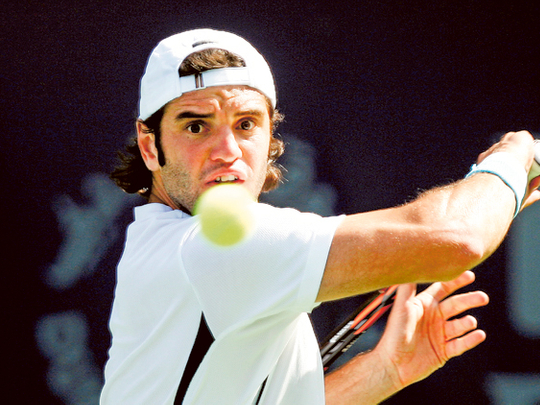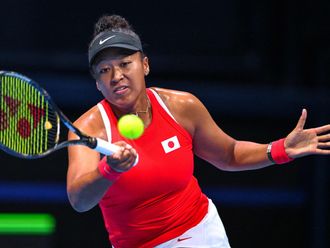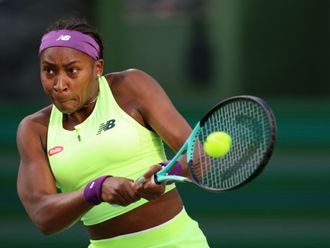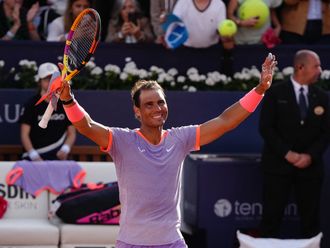
Dubai: World No 137 Malek Jaziri, the highest ranked Arab tennis player currently playing on the ATP Tour, has urged Mena countries to create a development circuit to help more Arab players turn professional.
Jaziri was speaking after reaching the quarter-finals of Dubai Duty Free Men’s Open for the first time in his career on Wednesday with a 6-3, 7-5 win over India’s Somdev Devvarman.
Arab tennis has gone quiet since Morocco’s Younus Al Aynaoui hit World No 14 in the rankings — the highest for an Arab player — after reaching the quarter-finals of the Australian and US Opens in 2003.
Al Aynaoui’s success followed that of fellow Moroccan Hicham Arazi, who reached World No 22 after making the quarter-finals of the French and Australian Opens in 1998. Meanwhile, Morocco’s Karim Alami reached World No 25 in 2000.
But since then, there has been little to cheer about in the men’s game, and when asked what could be done to rekindle Arab tennis, 30-year-old Jaziri of Tunisia called for greater cohesion between Arab nations.
“In North Africa, they can make a circuit between Tunisia, Algeria, Morocco, or here between Qatar and Dubai, to help a lot of the players,” said the wildcard.
“They [Arab players] will not be able to travel a lot, because it costs a lot, you know, tennis,” he added. “They have the chance to play in the country there or close, and they don’t spend a lot of money, because tennis is — it’s money. I mean, if you don’t have money to travel, you cannot play.”
The only reason for Arabic cheer recently has been in the women’s game with Tunisia’s Selima Sfar breaking into the doubles’ top 50 after reaching the Wimbledon doubles quarter-final in 2008 and reaching World No 75 in the singles in 2001.
Sfar’s success follows Morocco’s Bahia Mouhtassine hitting World No 139 in 2002 and Egypt’s Betsy Abbas making the quarter-finals of the French Open in 1960.
There’s been more hope at junior level, however, with Tunisia’s Ons Jabeur becoming the first Arab to win a Grand Slam at any age level since 1964 with her French Open win in 2011. Egypt has also had recent success with Karim Hossam and Sandra Samir reaching World No 11 and No 13 in the boys’ and girls’ junior rankings respectively. But more still needs to be done at grassroots, according to Jaziri.
“They have to work on the base first and start with making more clubs to improve tennis,” he added. “They should also make more tournaments, big and small, futures and challengers for the players, so they can play for the country.
“They also need sponsors, too; they have to follow the players and help them to give them more chances. The Arab people also have to support and give more confidence to their players too. This is very important.”










